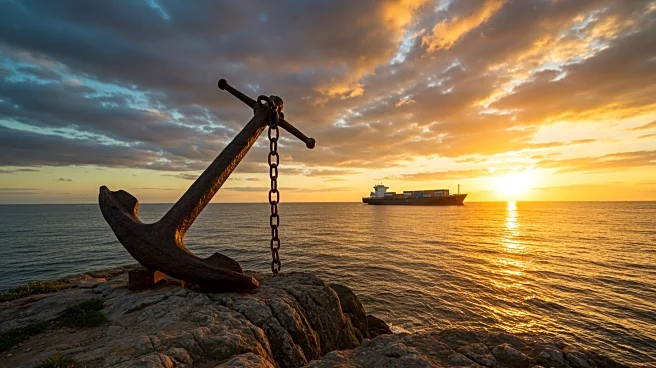What's Happening?
The containership Solong, which collided with the U.S. tanker Stena Immaculate in the North Sea, has arrived in Belgium for recycling. The ship spent months in Aberdeen for damage assessment and remediation before being towed to Ghent. Galloo, a metals recycling firm, will handle the recycling process, aiming to complete it by early 2026. The incident's legal ramifications continue, with the captain charged with gross negligence manslaughter. The UK Marine Accident Investigation Bureau is investigating navigation practices and environmental conditions at the time of the collision.
Why It's Important?
The recycling of Solong highlights the importance of sustainable practices in the maritime industry, reducing environmental impact through the recovery of materials. The incident underscores the need for enhanced situational awareness and safety protocols in maritime operations. The ongoing legal proceedings may influence future regulations and standards for ship navigation and watchkeeping practices. The investigation's findings could lead to improved safety measures, benefiting the industry and preventing similar incidents.
What's Next?
The UK Marine Accident Investigation Bureau will continue its investigation, focusing on navigation and watchkeeping practices, manning, and fatigue management. The legal proceedings against the captain may set precedents for accountability in maritime accidents. The recycling process will proceed, with Galloo aiming to recover over 97% of materials for renewable use. The maritime industry may see increased emphasis on safety protocols and sustainable practices as a result of this incident.









